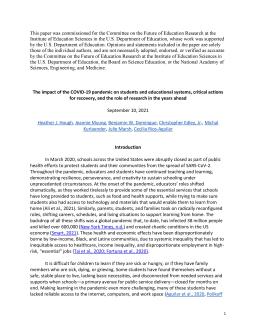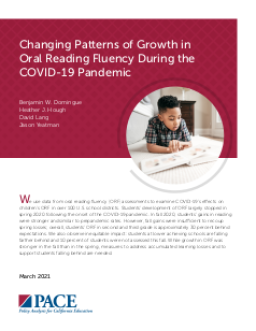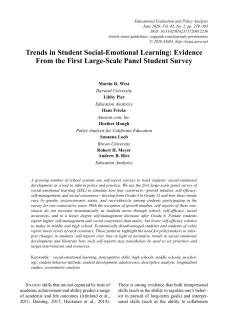Summary
IES issued a report on the future of education research at the National Centers for Education Research and Special Education Research. The report identifies issues, details new methods and research investments needed in the future. PACE produced a paper to synthesize existing evidence in the field and frame recommendations. Public input and outside experts were also consulted.
Summary
The COVID-19 pandemic had a significant negative effect on the oral reading fluency (ORF) of US students in grades 2-3 in over 100 school districts, with students falling 30% behind expectations. While there was some recovery in the fall, it was insufficient to make up for the spring losses. The impact is particularly inequitable, with lower achieving schools being hit harder, and 10% of students not being assessed. Addressing accumulated learning losses and supporting struggling students is necessary.


